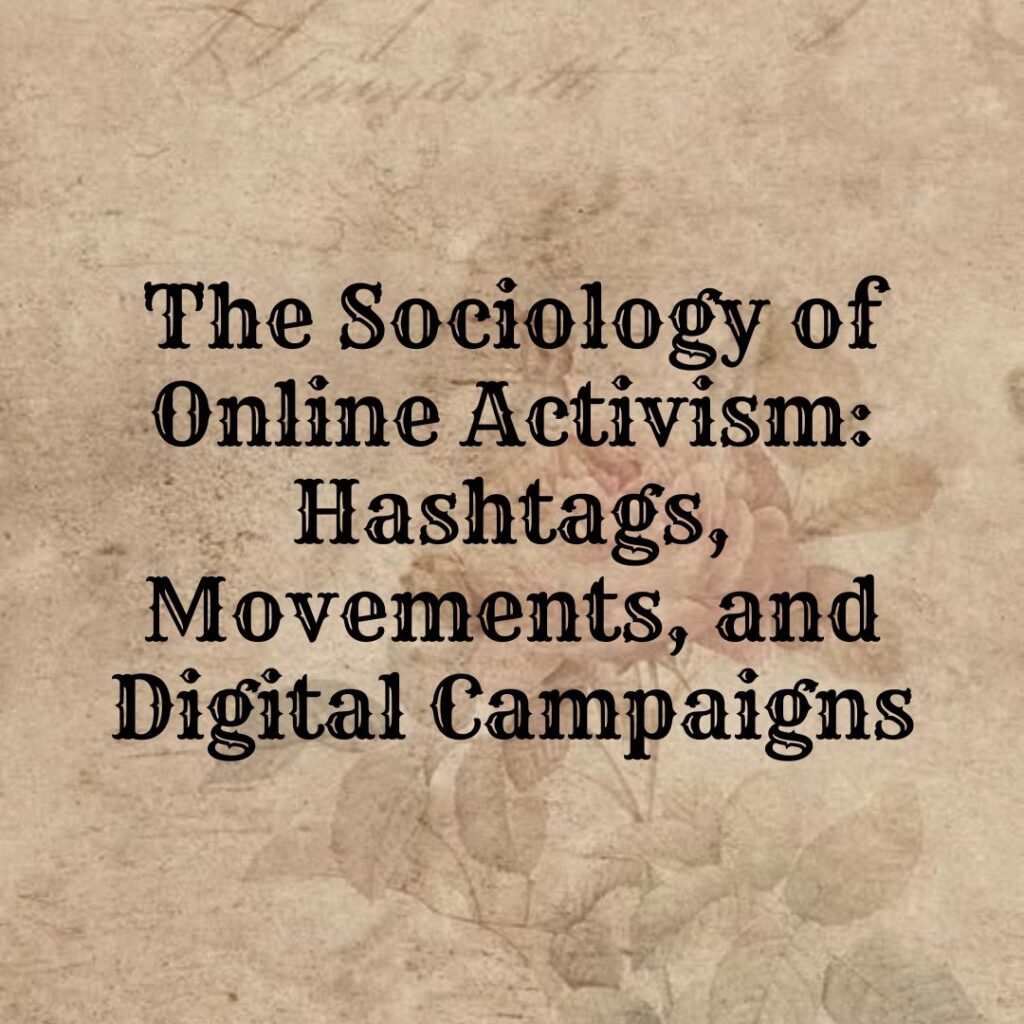In the digital age, activism has found new avenues for expression and impact through the power of social media and online platforms. From viral hashtags that mobilize global movements to targeted digital campaigns that influence policy, online activism has reshaped the landscape of social change in profound ways. This article explores the sociology behind online activism, examining how hashtags, movements, and digital campaigns have become catalysts for societal transformation.
The Rise of Digital Activism
Digital activism, often referred to as “clicktivism” or “cyber activism,” leverages the internet and social media platforms to raise awareness, organize protests, and influence public opinion. Unlike traditional forms of activism that relied heavily on physical presence and local organizing, digital activism transcends geographical boundaries, allowing individuals from diverse backgrounds to participate and contribute to causes that resonate with them.
Example: #BlackLivesMatter Movement
One of the most prominent examples of digital activism is the #BlackLivesMatter movement, which gained traction on Twitter in response to incidents of police brutality and systemic racism. What started as a hashtag quickly evolved into a global movement, sparking protests, conversations about racial justice, and policy reforms worldwide. The movement’s ability to amplify marginalized voices and catalyze public discourse underscores the transformative potential of online activism.
The Role of Hashtags in Mobilization
Hashtags serve as digital rallying cries, symbolizing solidarity and amplifying messages across social media platforms. They facilitate the organization of information and enable activists to reach a broader audience instantaneously. The strategic use of hashtags can propel a cause into the mainstream media, influence public opinion, and garner support from individuals who might not otherwise engage in activism.
Example: #MeToo Movement
The #MeToo movement exemplifies how hashtags can galvanize collective action against sexual harassment and assault. Originating on Twitter, the hashtag encouraged survivors to share their stories, exposing the prevalence of misconduct across various industries and catalyzing societal shifts towards accountability and gender equality.
Digital Campaigns: Shaping Public Discourse
Digital campaigns harness the power of storytelling, visual media, and interactive content to engage audiences and drive social change. They often employ multimedia strategies, such as videos, infographics, and interactive websites, to convey complex issues and inspire action. By utilizing data analytics and targeted messaging, digital campaigns can effectively influence public opinion and policy outcomes.
Example: #ClimateStrike Campaign
The #ClimateStrike campaign orchestrated by environmental activists, notably Greta Thunberg, utilized social media platforms to mobilize millions of individuals worldwide to demand urgent action on climate change. Through striking visuals, compelling narratives, and youth-led advocacy, the campaign sparked global protests, influenced policy discussions, and amplified calls for environmental justice.
Challenges and Criticisms
While digital activism has democratized access to advocacy and mobilized unprecedented numbers of supporters, it also faces criticism and challenges. Critics argue that clicktivism may prioritize symbolism over substantive change, fostering “slacktivism” where individuals engage superficially without committing to sustained action or structural reform. Moreover, the digital landscape poses risks such as misinformation, algorithmic bias, and platform censorship, which can undermine the effectiveness and inclusivity of online activism.
Conclusion: The Future of Online Activism
As technology continues to evolve, so too will the strategies and impact of online activism. The sociology of online activism reveals a dynamic interplay between digital platforms, social movements, and societal norms, shaping the way individuals engage with activism in the 21st century. By understanding the complexities and potentials of digital activism, we can harness its transformative power to address pressing global challenges and advance social justice agendas worldwide.
In conclusion, hashtags, movements, and digital campaigns represent not just tools for advocacy, but reflections of evolving social dynamics and collective aspirations in an increasingly interconnected world. As we navigate the complexities of digital activism, its role in shaping public discourse and driving social change remains undeniable, marking a new chapter in the sociology of activism and its profound impact on society.
This article has explored the multifaceted nature of online activism, highlighting its strengths, challenges, and enduring relevance in contemporary sociopolitical contexts.






